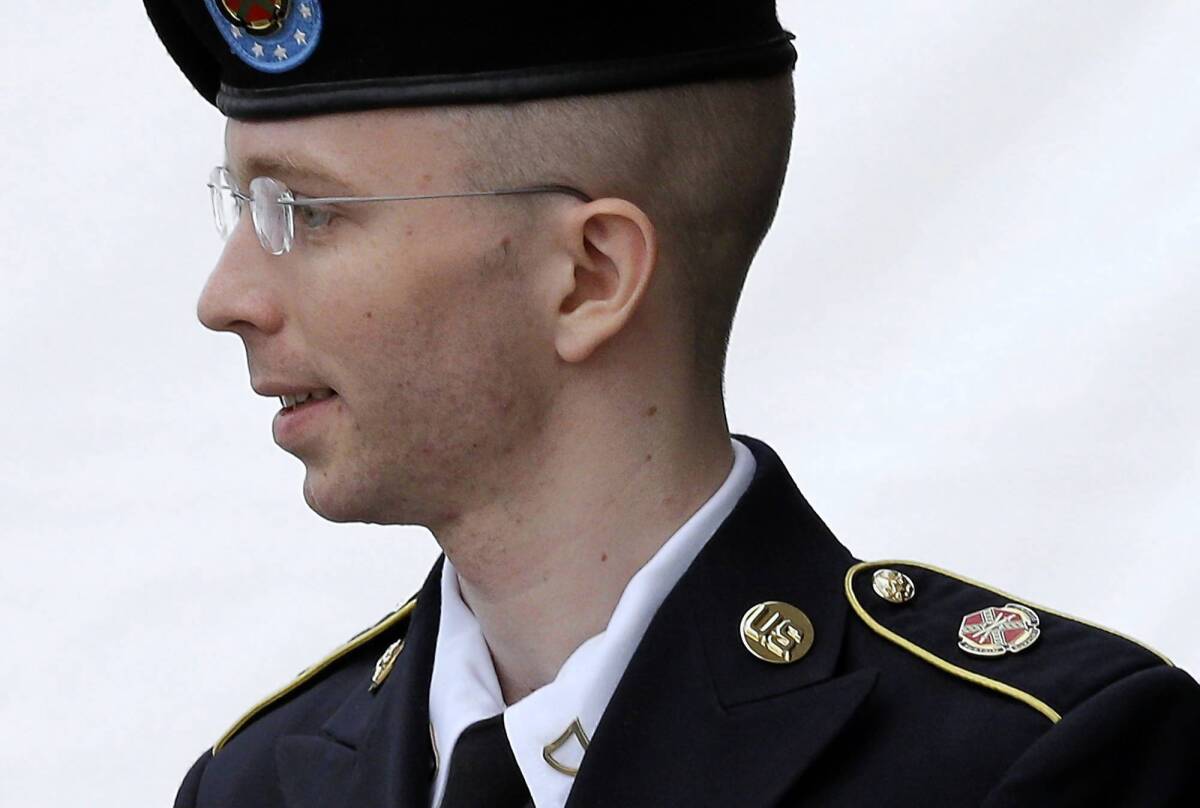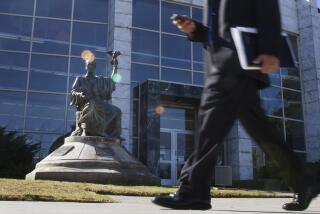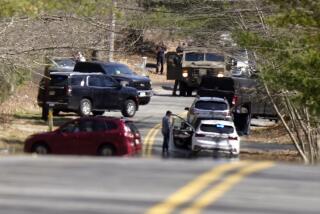Manning’s leaks jeopardized U.S. ties to allies, diplomat testifies

- Share via
FT. MEADE, Md. — A career U.S. diplomat testified Thursday that Army Pfc. Bradley Manning’s unauthorized release of classified material horrified the State Department and jeopardized relationships with U.S. allies overseas.
Elizabeth Dibble, principal deputy U.S. assistant secretary for Near Eastern Affairs who next week becomes deputy chief of mission in London, testified about the damage she says was inflicted when Manning gave the anti-secrecy organization WikiLeaks more than 700,000 diplomatic cables, combat reports and other highly classified documents in 2010.
Dibble said there was instant “horror and disbelief” at the State Department headquarters in the Foggy Bottom neighborhood of Washington “that our diplomatic communications had been released and were available on public websites for the world to see.”
U.S. embassies abroad are the “eyes and ears of the U.S. on the ground there,” she said, and internal working papers from Washington or inside the embassies should never be shared with other countries — especially as the U.S. attempts to confidentially shape its foreign policy. Leaking internal documents, she said, jeopardizes efforts by the U.S. to build trust with other nations.
If there is no confidentiality, she said, a foreign official or country may be “burned.”
Under cross-examination by defense attorneys, Dibble was asked about a statement from former Defense Secretary Robert M. Gates that government secrets often “leak like a sieve.” She said that was not true. “It makes a good sound bite,” she said, “but I don’t agree with it.”
Manning was acquitted Tuesday of the most serious charge he faced, aiding the enemy, but was convicted of espionage for releasing the secret material. In the sentencing phase of the trial underway at Ft. Meade, the judge, Army Col. Denise Lind, is weighing whether to impose the maximum of 136 years.
A second senior diplomat, John D. Feeley, testified that he was based in Mexico City in 2010 when he first learned that the Manning leaks included numerous confidential State Department cables.
“Through communications from Washington,” he said, “they informed us there were purported cables that had been collected and were going to be put out on the World Wide Web.”
Feeley, now the principal deputy assistant secretary for the Western Hemisphere, said the Manning leaks had an “impact,” which he discussed later in a closed classified session. Dibble also gave additional testimony in a closed session.
WikiLeaks founder Julian Assange defended Manning, calling him “the quintessential whistle-blower.”
“Manning’s alleged disclosures have exposed war crimes, sparked revolutions and induced democratic reform,” Assange said in a statement from London, where he has taken refuge in the Ecuadorean Embassy to avoid extradition to Sweden on sex-crime charges.
He repeated his complaints about President Obama initiating “more espionage proceedings against whistle-blowers and publishers than all previous presidents combined,” despite a 2008 campaign statement that, Assange said, “praised whistle-blowing as an act of courage and patriotism.”
“That platform,” he added, “has been comprehensively betrayed.”
More to Read
Sign up for Essential California
The most important California stories and recommendations in your inbox every morning.
You may occasionally receive promotional content from the Los Angeles Times.












